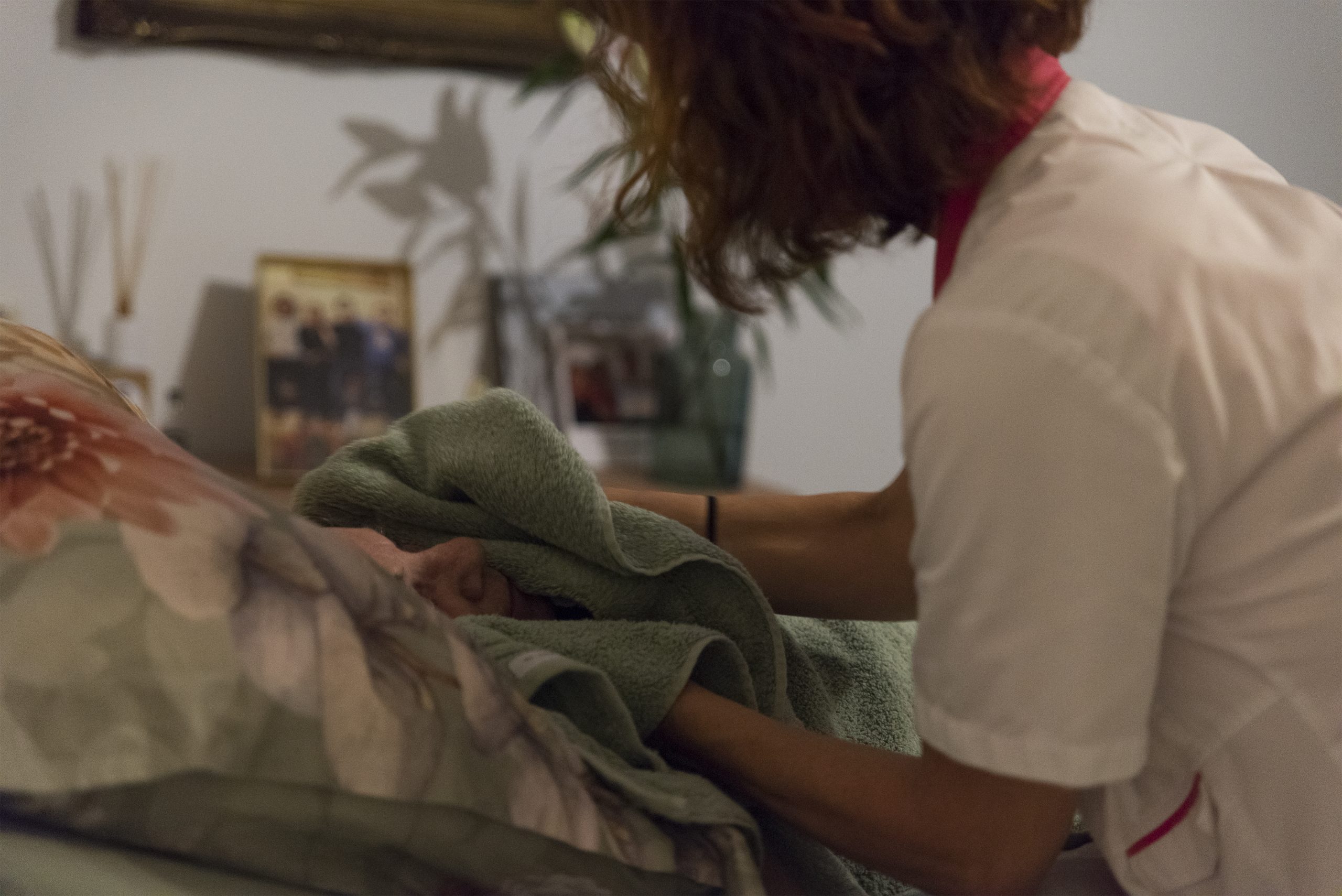“I was emotionally very affected by the despair of a resident who had to be isolated in his room. I found it difficult to be confronted with such visible suffering. Especially since there wasn’t much I could do besides lend an ear and be physically present. I sat in the office and cried for a while afterwards.”
Due to its major impact on Dutch care homes for older people, the COVID-19 pandemic has presented care staff with unprecedented challenges. Studies investigating the experiences of care staff during the pandemic have shown its negative impact on their wellbeing. We aimed to supplement this knowledge by taking a narrative approach. We drew upon 424 personal narratives written by care staff during their work in a Dutch care home during the first year of the COVID-19 pandemic (March 2020-Januari 2021). We published our findings on 13 February 2022 in the article ‘Good Care during COVID-19: A Narrative Approach to Care Home Staff’s Experiences of the Pandemic’ in the International Journal of Environmental Research and Public Health.
Obstructions to relational-moral good care
Firstly, our results show that care staff have a relational-moral approach to good care. Residents’ wellbeing is their main focus, which they try to achieve through personal relationships within the triad of care staff–resident–significant others (SOs). Secondly, our results indicate that caregivers experience the COVID-19 mitigation measures as obstructions to relational-moral good care, as they limit residents’ wellbeing, damage the triadic care staff–residents–SOs relationship and leave no room for dialogue about good care. Thirdly, the results show that care staff experiences internal conflict when enforcing the mitigation measures, as the measures contrast with their relational-moral approach to care.
“A resident is standing at the window. Her husband has come to wave to her from outside. As a result of the corona restrictions, no visitors are allowed. The resident gestures to her husband: ‘come upstairs.’ I explain to her that that’s not possible. ‘Then I’ll go to him.’ I tell her that’s not possible either. ‘You are so mean’, she tells me.”
Recommendation
We conclude that decisions about mitigation measures should be the result of a dialogic process on multiple levels so that a desired balance between practical good care and relational-moral good care can be determined.
The article ‘Good Care during COVID-19: A Narrative Approach to Care Home Staff’s Experiences of the Pandemic’ by Marleen Dohmen, Charlotte van den Eijnde, Lucia Thielman, Jolanda Lindenberg, Josanne Huijg, and Tineke Abma was published on 13 February 2022 in the International Journal of Environmental Research and Public Health, Special Issue Nursing and COVID-19.



